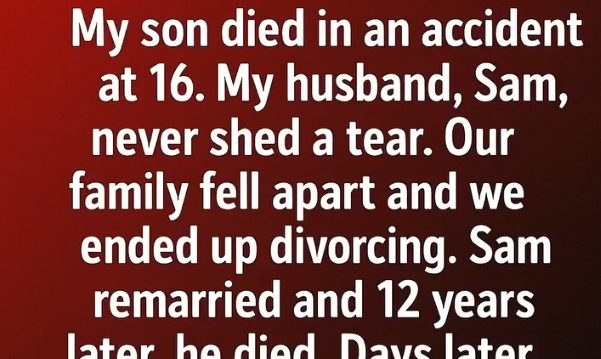When our teenage son passed away, the sorrow overwhelmed me entirely. My husband, Sam, never let a tear fall, and his quietness built a wall between us. That stillness grew into a divide, leading us to part ways through divorce. Time marched on, and Sam found love again, remarrying. Years later, when he too left this world, I believed his chapter had closed—until his wife handed me a small wooden box that shifted my perspective forever.
Within that box lay envelopes, each carefully addressed to our son. Sam’s wife shared that every year, on our boy’s birthday, Sam would climb a serene hill and pour his heart into a letter. These writings became his private ritual for honoring and mourning, a side of him he kept hidden from everyone. For the first time, I understood that the silence I had mistaken for coldness was, in truth, a reflection of his profound, unspoken devotion.
As I unfolded the letters, I discovered memories lovingly preserved: our son’s laughter, his ambitions, and the happiness he once gifted us. Some pages held apologies, others brimmed with encouragement and love. Through those words, I saw how Sam had carried his sorrow—not in open gestures, but in quiet lines committed to paper. Tears came as I grasped the depth of his silent suffering.
Those letters revealed a vital truth: grief takes many forms. Some share it freely, while others cradle it within their souls. What truly counts is not the manner of mourning, but the enduring presence of love. Compassion and empathy pave the way for healing, even years after the pain first takes root.







